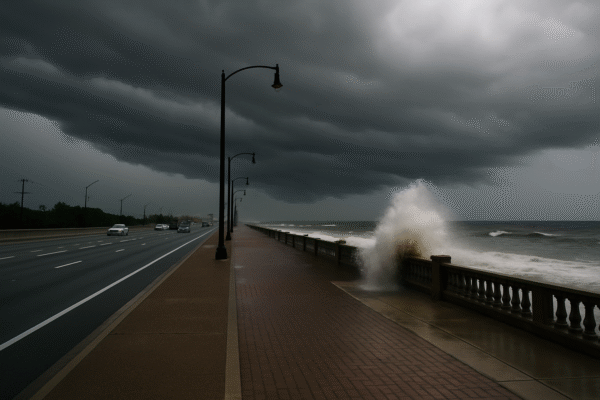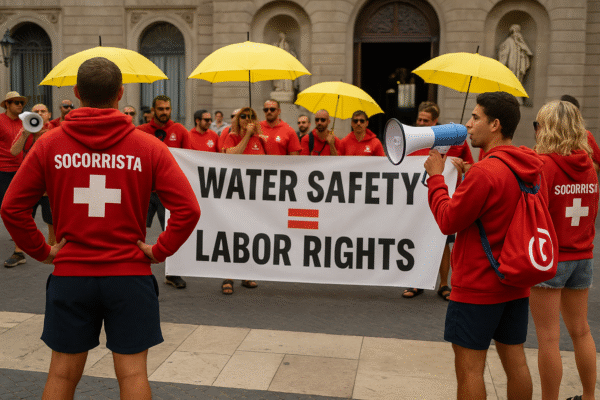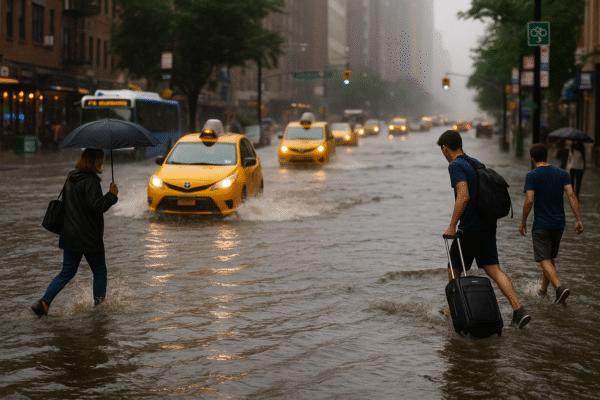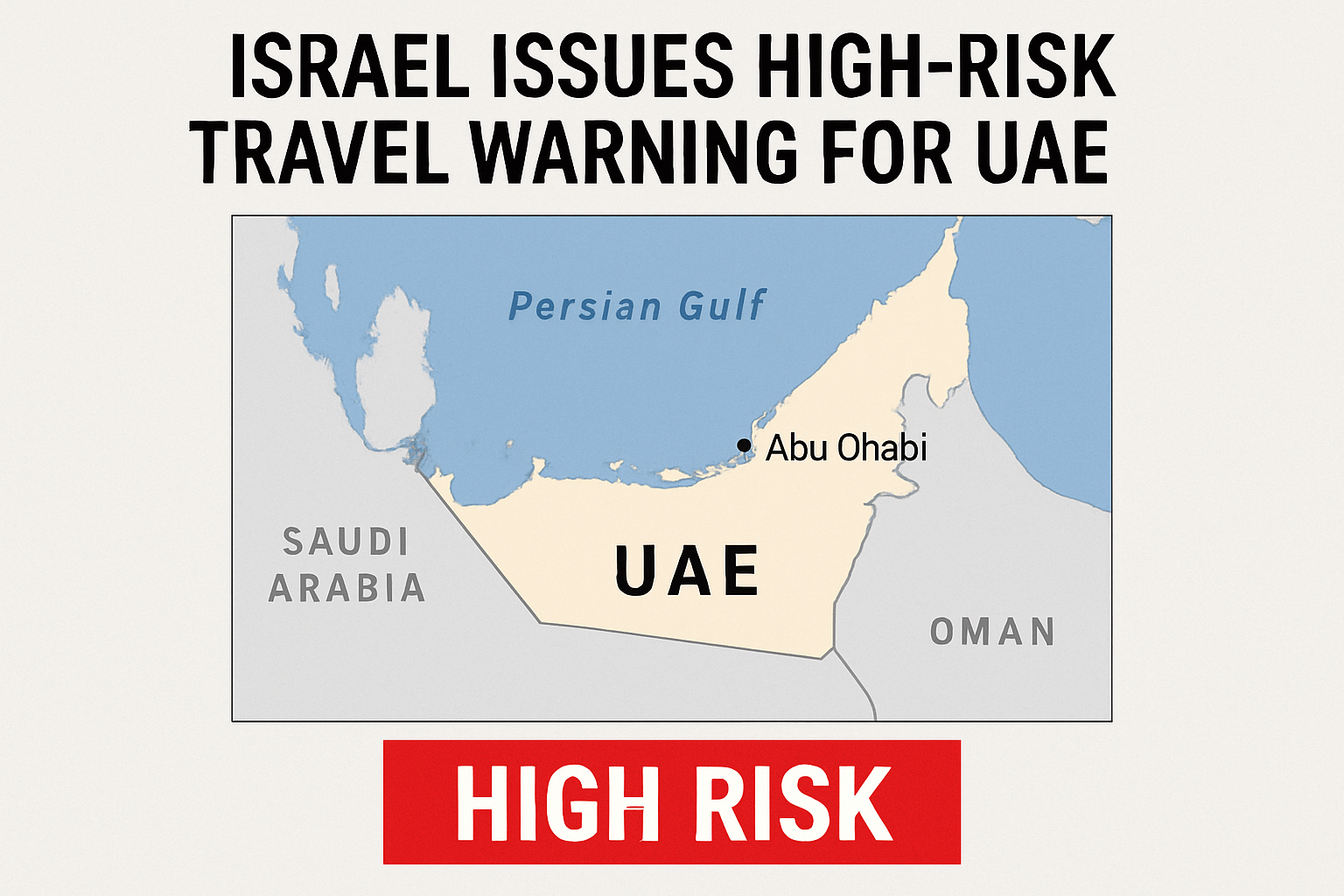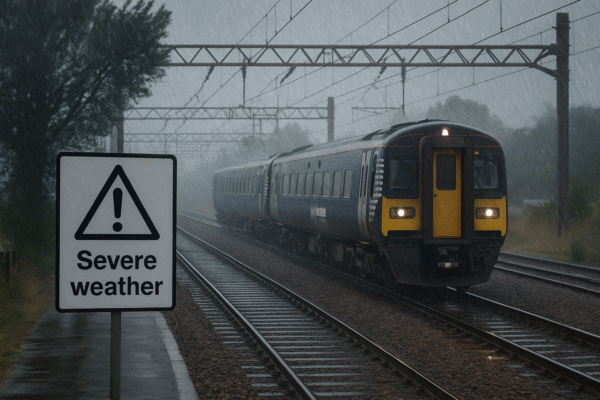Scotland’s tourism and travel sector is bracing for significant disruptions as Storm Floris is forecast to hit the region with violent winds reaching up to 85mph, accompanied by torrential rainfall. The Met Office has issued a yellow weather warning for much of the country beginning early Monday, August 4, 2025, with conditions likely to impact railway operations and transportation infrastructure throughout Scotland.
Travelers planning to visit or commute within Scotland during this period are urged to stay updated on rail service announcements and consider adjusting their itineraries.
Impact on Rail Travel and Tourism in Scotland
Storm Floris is expected to affect several key tourist and commuter routes, including major rail corridors between Edinburgh, Glasgow, Aberdeen, Inverness, and the Highlands. With gusts nearing hurricane strength, transport officials are prioritising safety over speed, warning of potential track blockages from fallen trees, power line hazards, and flying debris.
According to Network Rail Scotland, teams have already initiated proactive measures to protect critical infrastructure. This includes deploying debris-clearing crews, conducting real-time surveillance of vulnerable track areas, and implementing emergency speed restrictions to mitigate accident risks.
Emergency Coordination Across Rail Operators
Transport authorities, including ScotRail, are collaborating closely with Transport Scotland and British Transport Police to ensure smooth communication and rapid response. Emergency operation centres will monitor conditions 24/7 and coordinate with local councils and weather forecasting agencies.
Train schedules will be dynamically adjusted based on live weather data. While operators strive to maintain limited service during peak storm hours, delays and cancellations are expected—particularly on the East Coast and Highland lines, which are more prone to wind-related hazards.
Advice for Tourists and Local Travellers
Tourism in Scotland continues to thrive in the summer months, with events like the Edinburgh Fringe Festival and Royal Military Tattoo drawing thousands. However, Storm Floris’s arrival may lead to travel chaos, especially for visitors relying on public transportation.
VisitScotland and Transport Scotland are urging tourists to plan ahead, stay flexible, and prioritize safety. Non-essential travel on August 4–5 is strongly discouraged, particularly in high-risk areas such as Aberdeenshire, Moray, and the Western Isles.
Tourists are advised to:
- Check with train operators (e.g., ScotRail, LNER) for live updates.
- Use official apps like National Rail Enquiries or the ScotRail app for notifications.
- Follow Met Office weather alerts and avoid remote travel routes during storm hours.
- If traveling by car, review Traffic Scotland’s road safety updates before departure.
Preparedness Measures Across Scotland
Emergency services and transportation authorities have enhanced readiness protocols to respond to the storm. According to SEPA (Scottish Environment Protection Agency), flood alerts may also be issued for riverbanks and low-lying regions, where heavy rainfall could lead to flash flooding.
In addition to physical rail maintenance and hazard monitoring, public information campaigns are being launched to inform citizens and tourists about safety practices, including:
- Securing outdoor belongings.
- Avoiding walking near construction zones or open water.
- Carrying emergency kits during travel.
Potential Economic and Tourist Impacts
The travel disruption caused by Storm Floris may have ripple effects across Scotland’s £12 billion tourism industry. Many small towns that depend on summer visitors—especially in Speyside, Loch Lomond, and the Isle of Skye—may experience a drop in footfall due to travel cancellations. Meanwhile, accommodation providers and event organizers are revisiting contingency plans in case of extended disruption.
Local businesses are being urged to communicate clearly with guests, providing flexible booking policies and ensuring timely customer service support in case of travel-related delays.
Conclusion: Safety First Amid Scotland’s Storm Season
With extreme weather becoming more frequent in the UK, Storm Floris serves as a stark reminder of the importance of adaptive infrastructure and public preparedness. As Scotland faces this latest meteorological challenge, transport providers, tourists, and locals alike must remain vigilant, stay informed, and act responsibly.
For more travel news like this, keep reading Global Travel Wire




